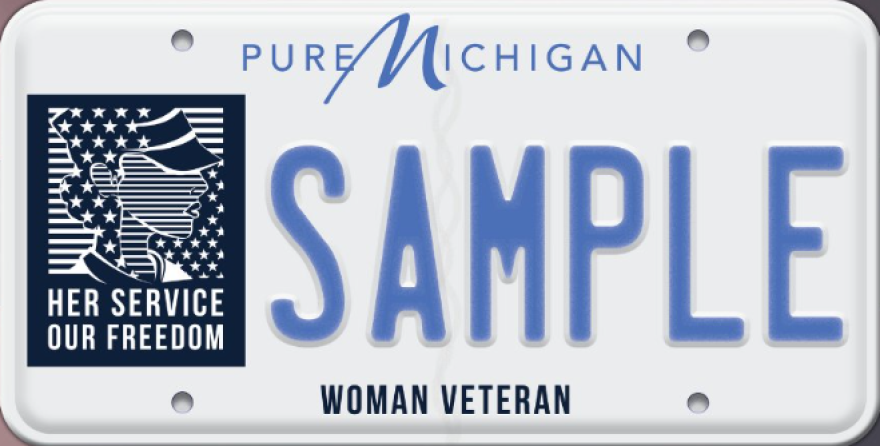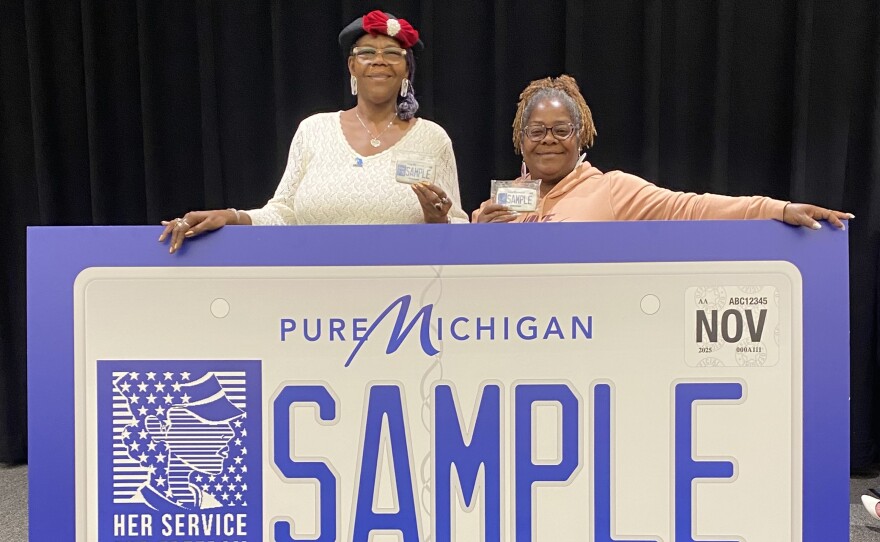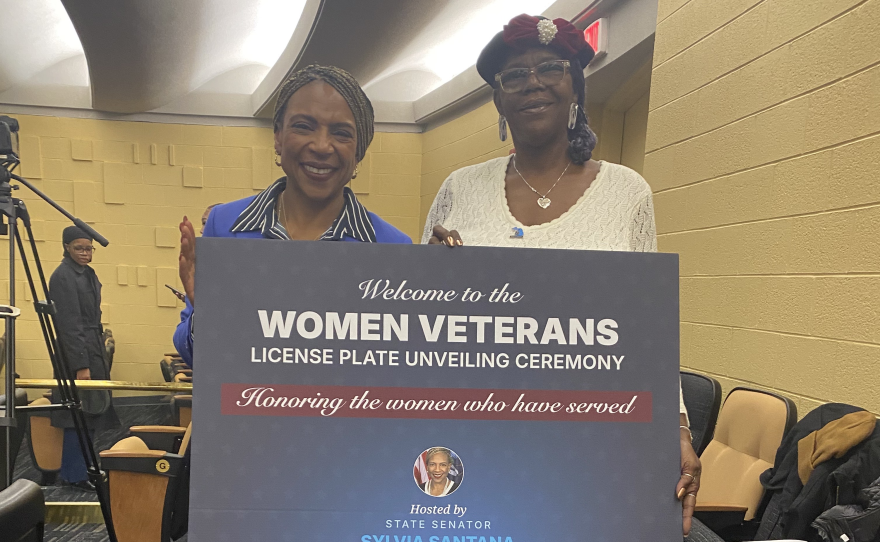For years, women veterans in Michigan have asked for the same kind of recognition their male counterparts receive. This month, that dream became reality.
On November 8, 2024, Governor Gretchen Whitmer signed bipartisan legislation creating the “Woman Veteran” license plate, allowing Michigan’s more than 43,000 women veterans to display their service publicly on their vehicles. The license design became available at Secretary of State offices this month.
“I think it’s awesome, and I think it has been long coming,” said Sergeant Stephanie Shannon, founder and CEO of Michigan Women Veterans Empowerment.

“Senator Gregory Vincent introduced that bill right after we did our first women veterans conference in Detroit. He said he didn’t know that we were suffering and dealing with all the issues we had … Having our own license plate is something we always have desired, because often when you think of veterans, you don’t think of women.”
Shannon says the new plate is about visibility as much as pride.
“We feel like we’re invisible. I’m a disabled Gulf War veteran and a combat veteran. You don’t think of combat when you think of a woman veteran.”
That invisibility is something Alexis Derriso, founder of the Motown Women Veterans Association, knows too well.
“I parked in a veterans’ spot at Lowe’s, and a woman came up and said, ‘That parking spot is for veterans.’” Derriso said. She engaged the woman in conversation.
“‘Yes, it is, because I am a veteran.’ And she said, ‘No way.’ I thought, ‘Oh my God, for this to be 2025. Seriously?’”
“It’s really going to help bring a change on. We finally have something out there to identify ourselves as we’re driving …we’ve always been here. We’ve always served. Now, people will finally see us," Derriso said.
How to Get the Woman Veteran License Plate
Eligible applicants must:
- Be a Michigan resident and verified woman veteran
- Provide a copy of their DD-214 (discharge papers)
- Apply at any Secretary of State branch office or online
The plate costs the same as a standard recognition plate, with a small additional service fee. Processing typically takes one to two weeks, according to the Secretary of State’s office.




